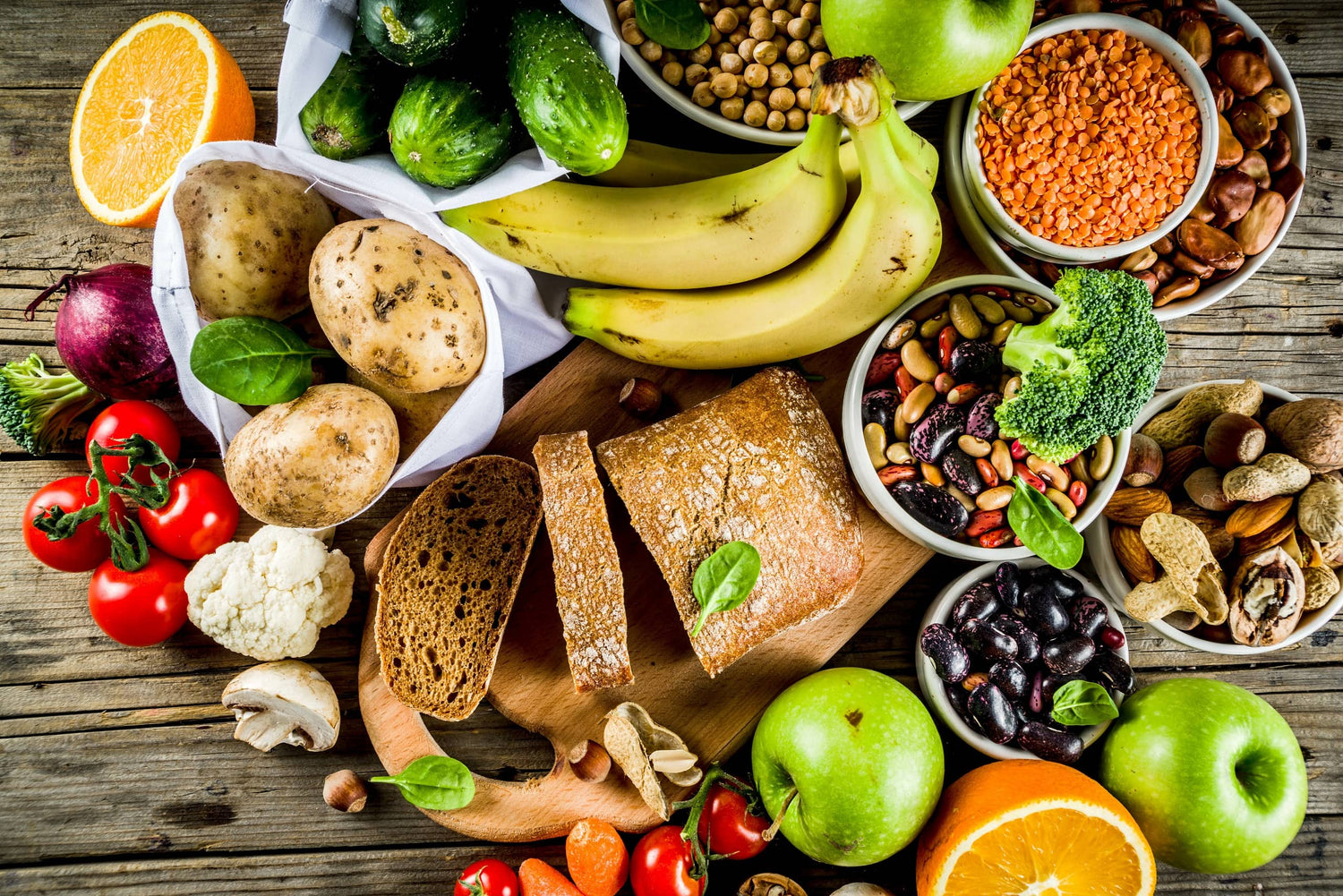You might have heard the message that caring for your microbiome is important. However, the question is; why? Dietitian Laura Tilt explains all.
The Microbiome Defined
Described as the ‘last human organ under research’ you might not be able to see your gut microbiome, but there’s no doubt that it has a significant impact on the way your body functions.Consisting of trillions of tiny living microbes (including bacteria, yeasts and fungi) the gut microbiome is mostly housed in the large intestine or colon - the final section of the gut, where water is reabsorbed and stools (poop) are formed.
Amazingly, there are as many microbes living in your gut as there are human cells in your body. So you’re part microbe, part human. But because microbes are so tiny, they make up just a fraction of your weight - about 2kg in total, the same as a bag of flour.
When talking about the gut microbiome it’s helpful to remember that it’s not just a collection of microbes, but also their “theatre of activity” - a phrase which was first used in 1988 by a scientist investigating plant microbes. In short, it’s not just about who is there (the microbes) but what they are doing.
So, What Are They Doing?
Far from being something to fear, the microbes living in our guts are to be celebrated. We have co-evolved with them, and enjoy a mutually beneficial relationship - we provide them with food and a place to live, and in turn, they carry out a number of important jobs for us.1. They’re Digesting Superheroes
Firstly, gut microbes are capable of breaking down the dietary fibres in plant foods that we can’t digest. When gut microbes consume dietary fibre, they produce compounds known as short-chain fatty acids. These compounds have a number of positive effects in the body, such as keeping the cells lining the gut healthy, and influencing satiety after eating.2. They Support Immune Function
Secondly, the microbes in your gut form an important part of your immune system. Beneficial gut microbes compete for the same nutrients as pathogens (microbes that can cause disease), and they are often better competitors - which effectively prevents pathogens from growing. Some beneficial microbes also produce special antimicrobial proteins that target pathogens.3. They Influence Brain and Behaviour
We’re also learning that microbes can ‘chat’ with the brain in a number of ways, including via the vagus nerve (the longest cranial nerve in the body, which spiders from the brain into the gut) and also through the production of short-chain fatty acids, which may impact mood and cognition.Animal studies have shown that gut microbes are essential for a normal stress response, and that specific beneficial microbes (known as psychobiotics) could have positive effects on anxiety and depression. This is an emerging but exciting area of research.
Why Your Microbiome Needs Your Support
When you consider how your gut microbiome impacts your health, it makes sense to do what you can to take care of it. Although your gut microbiome established itself from birth without your direct help (your first microbes were seeded during birth!), it does need your help to stay balanced.That’s because diet and lifestyle factors such as stress levels, physical activity, and the amount of fibre eaten can all play an influential role in determining the balance of microbes in the gut. For example, research suggests that if we don’t feed our microbes enough fibre, they can shrink in number and diversity. And since a diverse microbiome is a marker of a robust microbiome, this is something we want to avoid.
So with that in mind, here are three approaches to supporting your microbiome
1. Get Enough Fibre and Variety of Plant Foods in Your Diet
Getting enough fibre from fruits, vegetables, pulses and wholegrains is key to keeping your microbes well nourished. In the U.K. it’s recommended that we get 30 grams of fibre in our diets each day, but the national average is about 18 grams. Learn about some easy swaps you can make to increase your fibre intake here. Variety matters too - there’s some evidence that eating a wide range of different plant foods is linked with microbiome diversity. So try and eat lots of different fruits, vegetables and grains rather than the same few.2. Make a Habit of Movement You Enjoy
Although it’s not clear why, regular exercise seems to be good for your gut microbes. It’s possible that it helps by reducing stress or by stimulating the right conditions for beneficial microbes to thrive. The good news is that you don’t have to do intense workouts to benefit; in fact low to moderate intensity exercise seems to be the most helpful kind. Brainstorm a list of the types of movement you enjoy (or would like to try), and aim to make them part of your daily routine. Cycle to the shops, do some gardening in the sunshine, take a lunchtime walk whilst listening to your favourite podcast, or book a slow flow yoga class to help you relax after a long day.3. Find a Way to Balance Stress
Stress - the feeling of being overwhelmed or unable to cope - is something we all resonate with. Although the stress response evolved to help protect us from danger, when it builds up or becomes a daily struggle it can have a negative impact on gut function and gut microbes (read more about stress and the gut here). Finding balance involves looking both at the triggers and causes, learning how to respond differently, and making time for rest and relaxation, which can build resilience for challenging times.References
Sassone-Corsi, M., & Raffatellu, M. (2015). No Vacancy: How Beneficial Microbes Cooperate with Immunity To Provide Colonization Resistance to Pathogens. The Journal of Immunology.Berg, G., Rybakova, D., Fischer, D., Cernava, T., Vergès, M.-C. C., Charles, T., Chen, X., Cocolin, L., Eversole, K., Corral, G. H., Kazou, M., Kinkel, L., Lange, L., Lima, N., Loy, A., Macklin, J. A., Maguin, E., Mauchline, T., McClure, R., … Schloter, M. (2020). Microbiome definition re-visited: old concepts and new challenges. Microbiome, 8(1), 103.
Dinan, T. G. (2019). 100 words…on psychobiotics – 100 words. The British Journal of Psychiatry.
Mcdonald, D., Hyde, E., Debelius, J. W., Morton, J. T., Gonzalez, A., Ackermann, G., Aksenov, A. A., Behsaz, B., Brennan, C., Chen, Y., Goldasich, D., Dorrestein, P. C., Dunn, R. R., Fahimipour, A. K., Gaffney, J., Gilbert, J. A., Gogul, G., Green, J. L., Hugenholtz, P., … Kosciolek, T. (2018). American Gut : an Open Platform for Citizen Science. 3(3), 1–28.
Mailing, L. J., Allen, J. M., Buford, T. W., Fields, C. J., & Woods, J. A. (2019). Exercise and the Gut Microbiome: A Review of the Evidence, Potential Mechanisms, and Implications for Human Health. Exercise and Sport Sciences Reviews, 47(2), 75–85.



